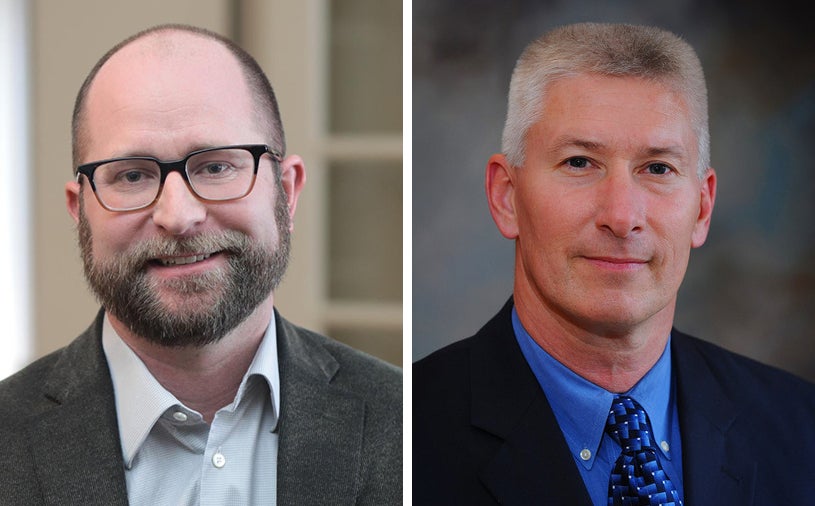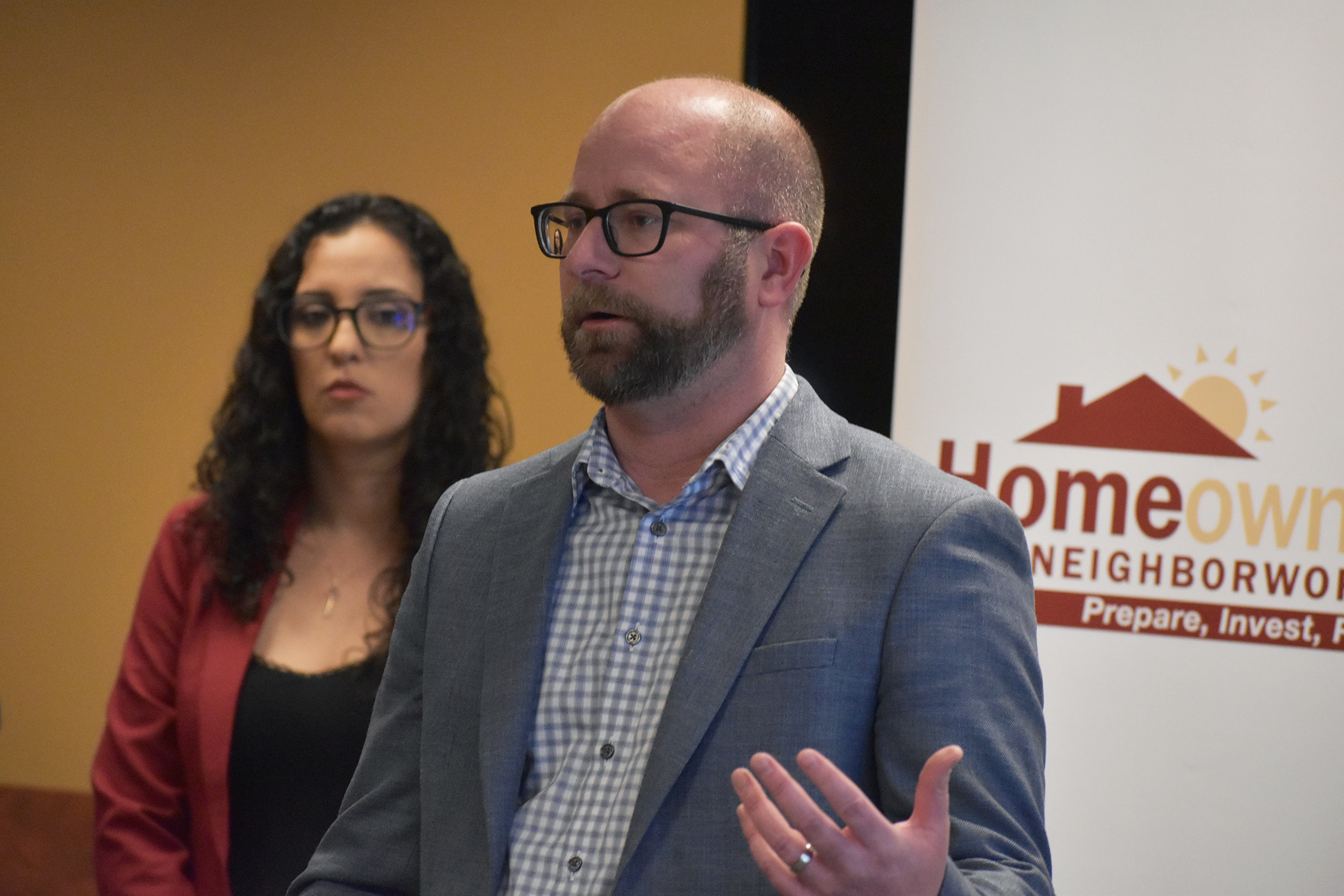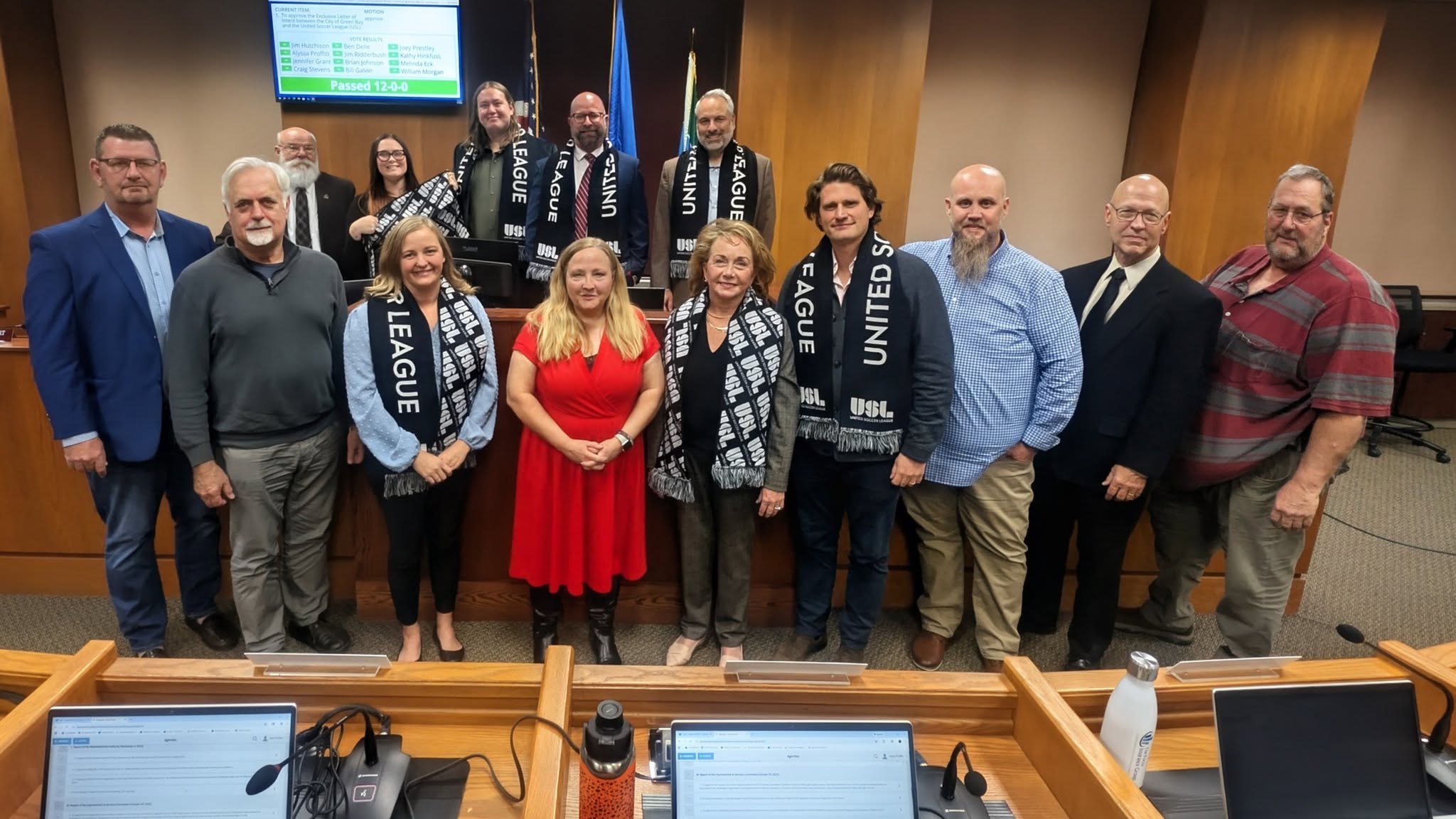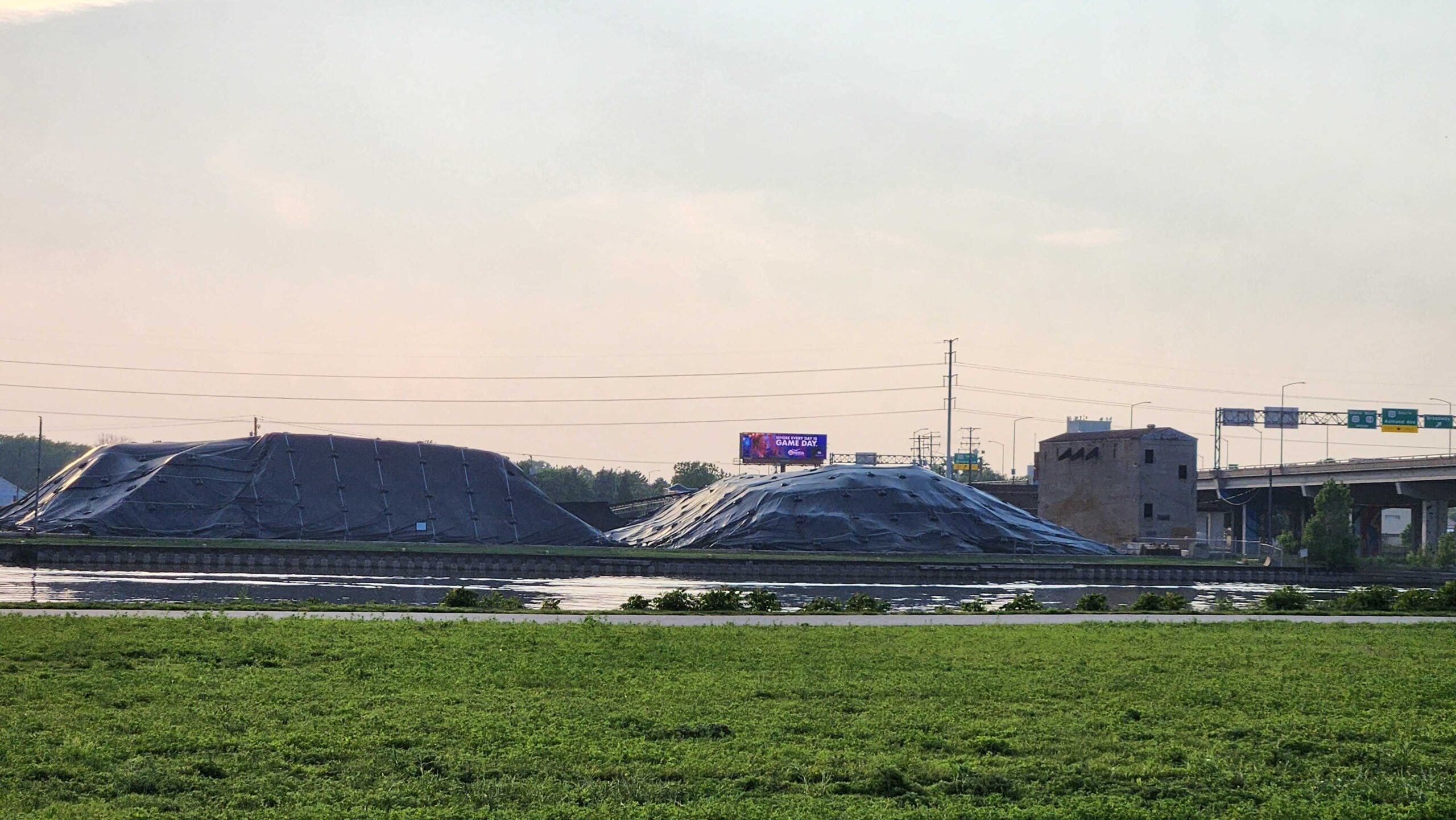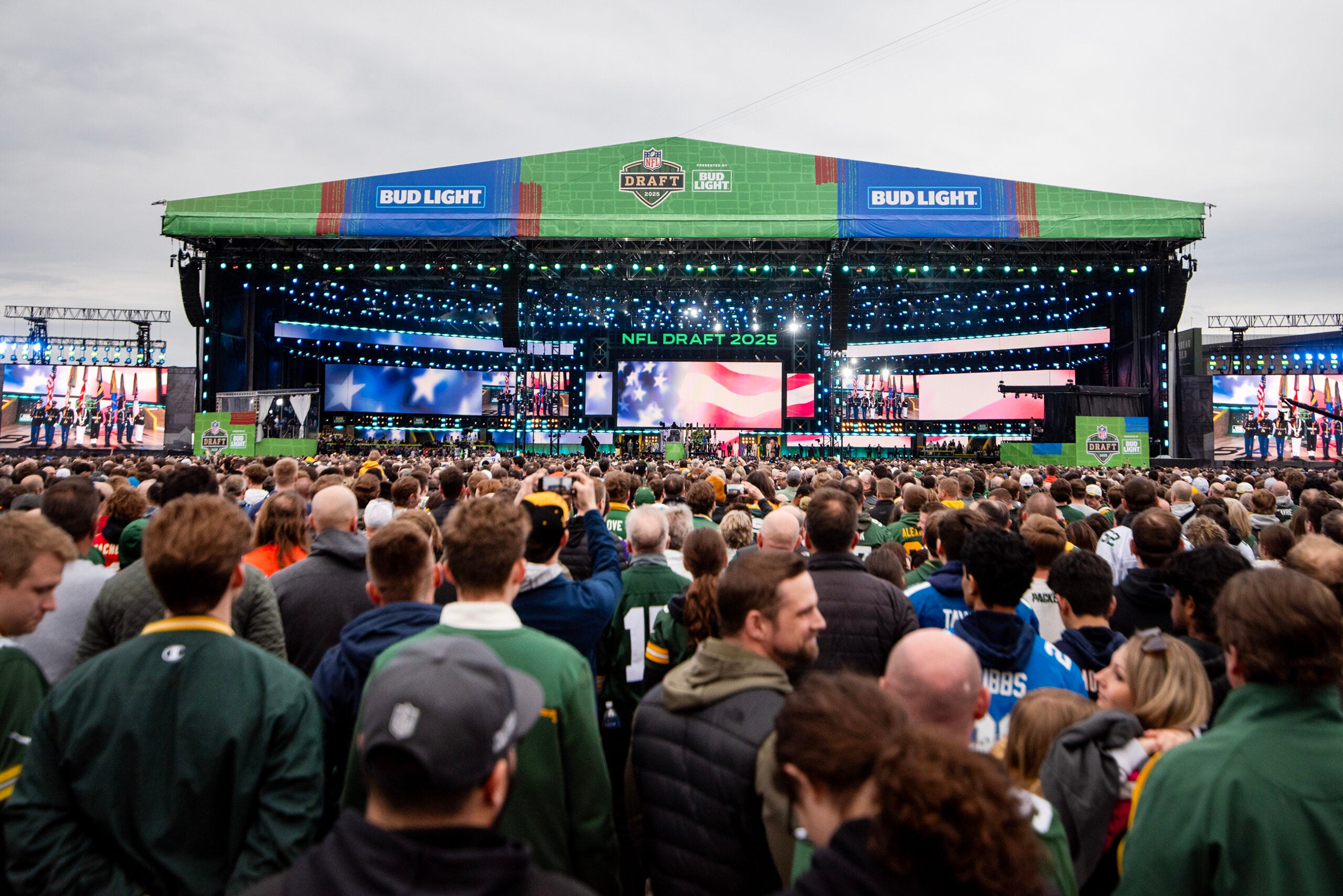For the first time in 16 years, the city of Green Bay will elect a new mayor next week. The state of the city’s roads, specifically the number of potholes, has become a major campaign issue.
Incumbent Mayor Jim Schmitt declined to run again in the April 2 election, leaving the seat open. The two candidates vying to be Green Bay’s mayor are former Democratic state Rep. Eric Genrich and Brown County Board Member Patrick Buckley, a former police officer and city alderman.
Like many areas, Green Bay is currently pockmarked by potholes, and Genrich is making that a focus of his campaign.
News with a little more humanity
WPR’s “Wisconsin Today” newsletter keeps you connected to the state you love without feeling overwhelmed. No paywall. No agenda. No corporate filter.
After a voters’ forum, Genrich said road conditions were an important issue during the last election cycle in Wisconsin.
“Infrastructure was a huge part of the conversation in the gubernatorial election and will continue to be a big part of that budget discussion,” he said.
Genrich said that he believes more long-range planning is needed.
“We, as a community, need to get our arms around that, to develop a capital improvement plan that has a five-year, 10-year window of developing an inventory of those needs,” he said.

Green Bay’s roads are laden with potholes, making road conditions a major issue in this years’ mayoral race. Patty Murray/WPR
Buckley said he’s opposed the city’s new $20 wheel tax. He said the money isn’t set aside for road repairs. Instead, he favors using property taxes for roads.
“It was asked at the budget meeting, ‘Where is the money going from the wheel tax? What roads are being done with that?’ And they said, ‘No, you don’t understand we bond for roads.’”
David Helpap, an associate professor of political science at the University of Wisconsin-Green Bay, said potholes and failing infrastructure are nonpartisan issues.
He added that whoever wins the election will bring change.
“No matter which candidate ends up winning, it is going to be a change at city hall,” he said.
Helpap said the race is significant to the state.
“Green Bay is the third-largest city in the state and it is certainly the largest city in northeastern Wisconsin,” he said.
The mayor’s seat is technically non-partisan, but Genrich has the backing of the Democratic Party while Buckley has support from the local Republican Party.
Wisconsin Public Radio, © Copyright 2026, Board of Regents of the University of Wisconsin System and Wisconsin Educational Communications Board.
